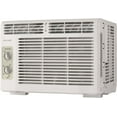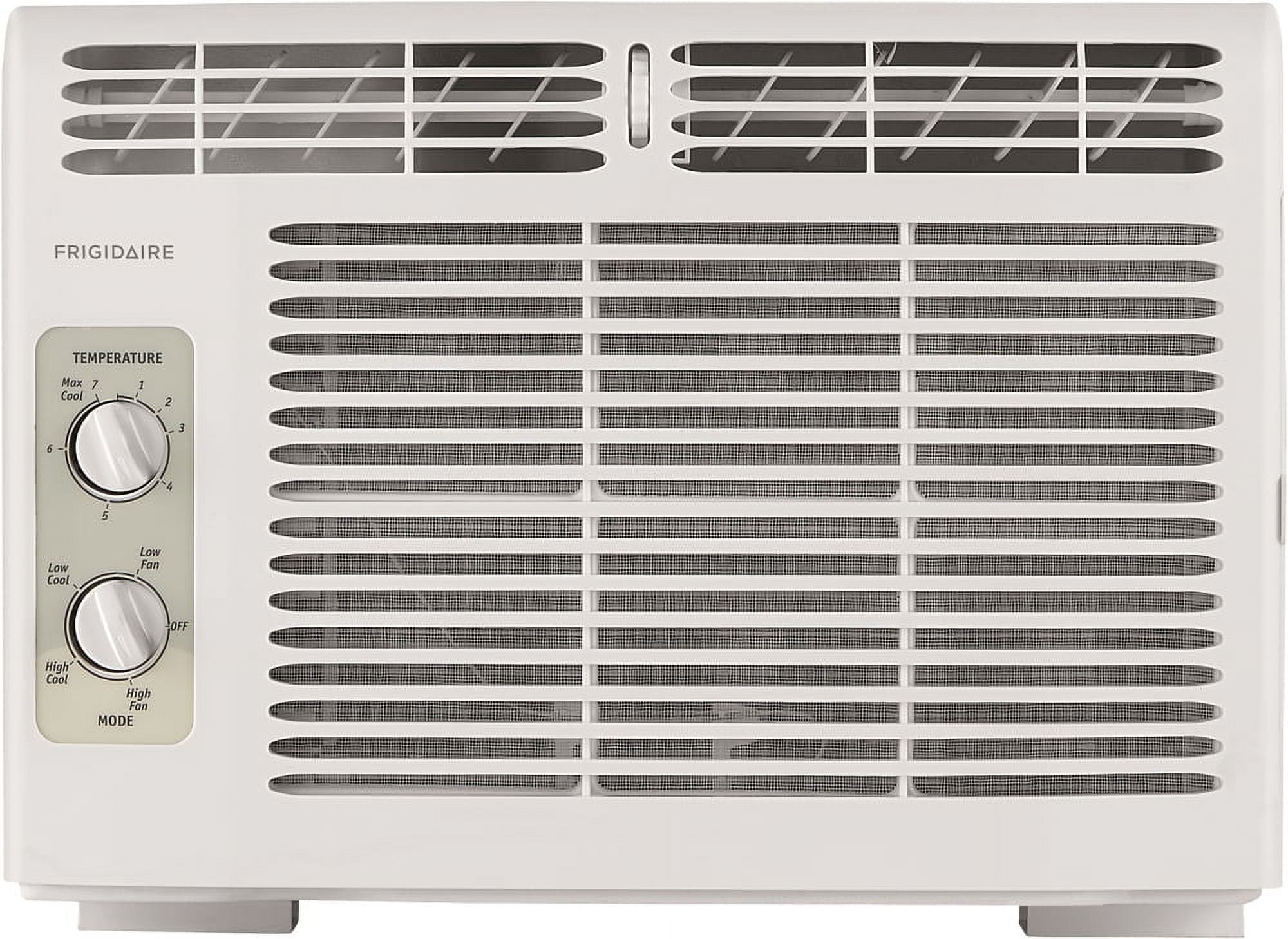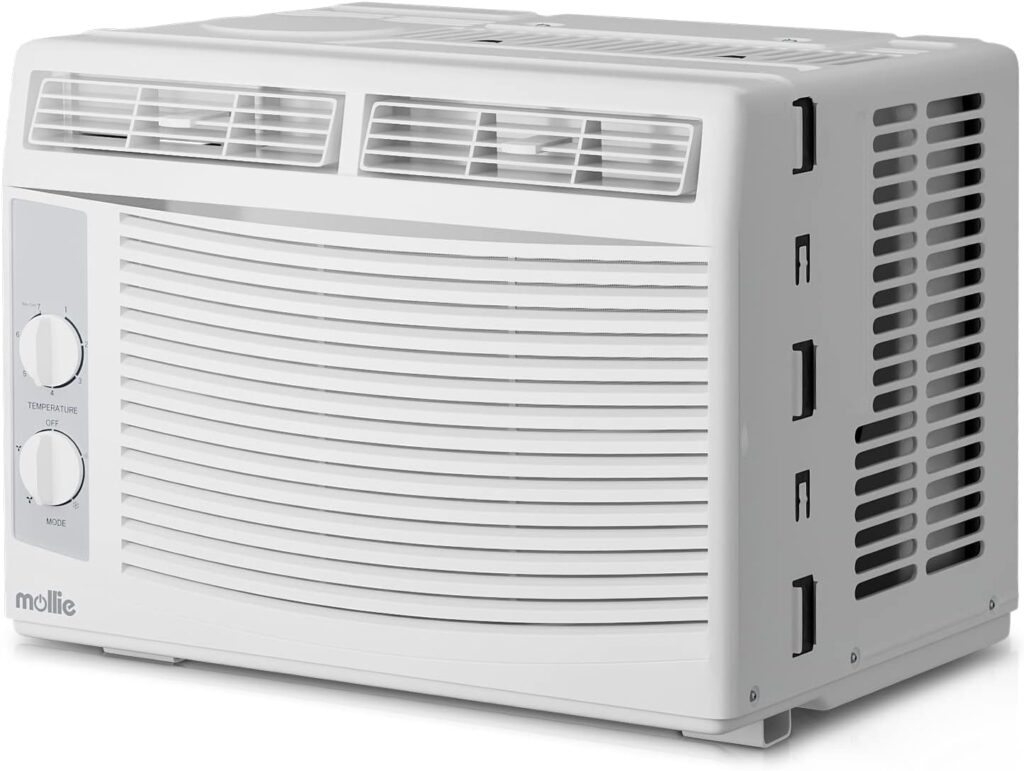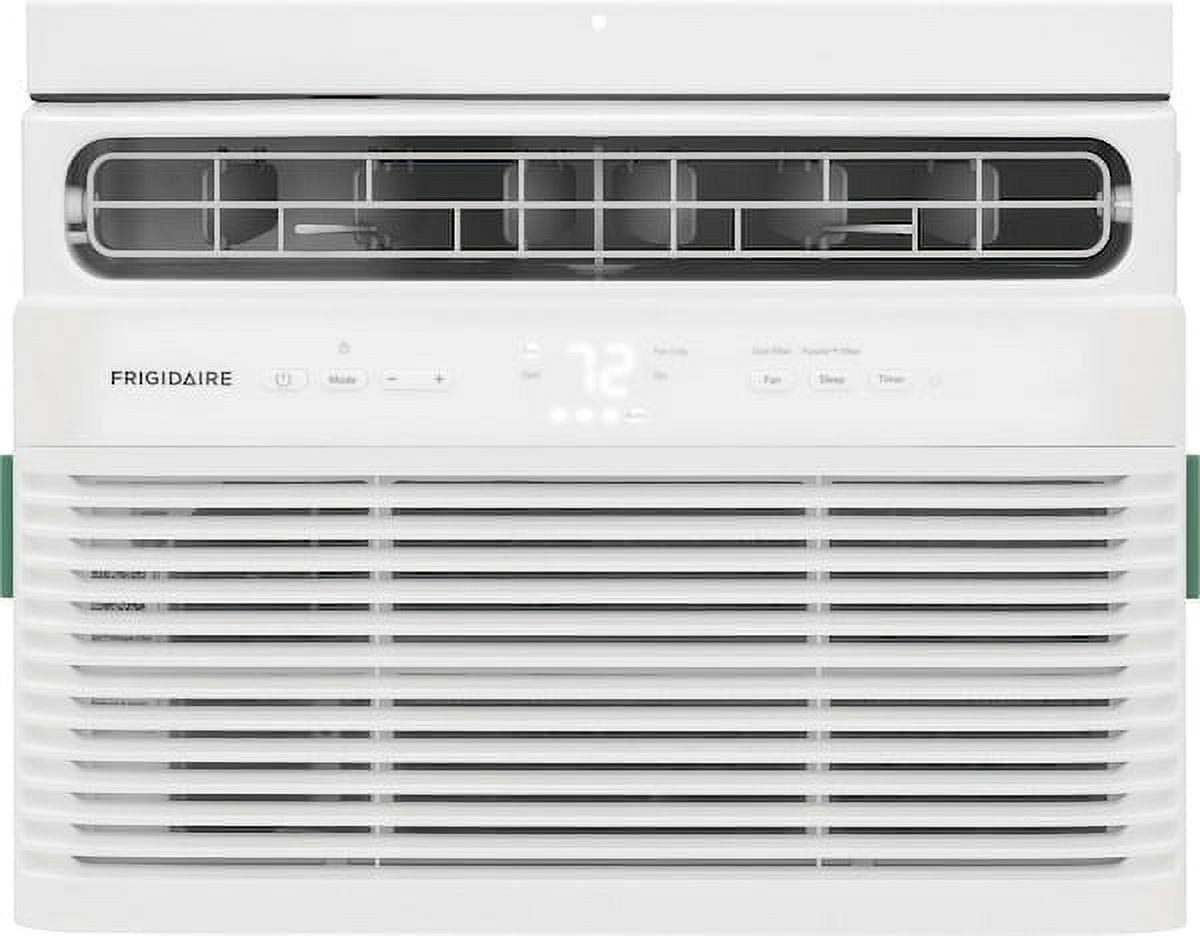Quietest 5000 Btu Window Air Conditioner

Frequently Asked Questions: Quietest 5000 BTU Window Air Conditioners
Choosing a window air conditioner, especially for smaller spaces, often comes down to two key factors: cooling power and noise level. A 5000 BTU unit is a popular choice for bedrooms or offices, but no one wants a loud, disruptive appliance. This FAQ addresses common questions about finding the quietest 5000 BTU window air conditioner on the market.
Q: What makes a 5000 BTU window AC unit "quiet"?
The perceived noise level of an air conditioner is measured in decibels (dB). Lower dB ratings indicate quieter operation. Several factors contribute to a quiet 5000 BTU unit:
- Compressor Design: The compressor is the heart of the AC, and its operation is a major source of noise. Some models use more advanced, quieter compressor designs.
- Fan Design: The shape, size, and speed of the fan blades impact noise. Aerodynamically optimized fan blades generate less turbulence and, therefore, less noise.
- Insulation and Dampening: Good insulation around the compressor and other noisy components helps to dampen vibrations and reduce sound transmission. Rubber grommets and other dampening materials can also be used to isolate the unit from the window frame, minimizing vibrations.
- Materials and Construction: The overall build quality and materials used can affect how much noise the unit produces and transmits. A sturdy, well-constructed unit is less likely to rattle or vibrate excessively.
Essentially, a quiet 5000 BTU AC unit minimizes noise production from its components and incorporates design features to reduce noise transmission.
Q: What is considered a "quiet" dB level for a 5000 BTU window AC?
Generally, anything below 55 dB is considered relatively quiet for a window air conditioner. Some top-rated quiet models can even operate in the low 50s or even high 40s dB. However, it's important to consider the following:
- Manufacturer Claims: Noise levels listed by manufacturers are often measured under ideal conditions in a lab. Real-world noise levels may be slightly higher.
- Operating Mode: The noise level typically varies depending on the fan speed and cooling mode. The highest fan speed will usually produce the most noise.
- Subjective Perception: What one person considers quiet, another might find disruptive. Individual sensitivity to noise varies.
- Comparison is Key: Focus on comparing the dB ratings of different models to get a sense of which ones are relatively quieter.
Look for models that advertise themselves as "quiet" or "low noise" and check the dB ratings in the product specifications. Pay attention to customer reviews, as they often provide valuable insights into the real-world noise performance of the unit.
Q: How can I ensure my 5000 BTU AC runs as quietly as possible, even if it's not the "quietest" model?
Even if you don't have a top-of-the-line, ultra-quiet model, you can take steps to minimize the noise generated by your 5000 BTU window AC:
- Proper Installation: Ensure the AC is securely mounted in the window frame. Use foam weather stripping or caulk to seal any gaps between the unit and the window frame to prevent vibrations and drafts. A loose or poorly installed unit will inevitably be noisier.
- Level Installation: Make sure the unit is installed level. An unlevel AC can cause the compressor to work harder and generate more noise.
- Clean the Filters Regularly: Dirty filters restrict airflow, forcing the fan to work harder and potentially creating more noise. Clean or replace the filters as recommended by the manufacturer.
- Clear Obstructions: Ensure there are no obstructions blocking the airflow around the unit, both inside and outside.
- Use Low Fan Speed When Possible: The highest fan speed is always the loudest. Use a lower fan speed if it provides sufficient cooling.
- Consider Vibration Dampening: Place rubber or foam pads between the AC unit and the window sill to further dampen vibrations.
- Address Rattling: If you hear any rattling, identify the source and try to secure the loose part. This could involve tightening screws or adding foam padding.
By taking these steps, you can significantly reduce the noise level of your 5000 BTU window AC, regardless of its initial noise rating.
Q: Are there specific brands known for producing quieter 5000 BTU window AC units?
While specific models change each year, some brands have a reputation for focusing on noise reduction in their air conditioner designs. Brands like Frigidaire, GE, and Midea are often mentioned in reviews and articles as offering quieter options. However, it's essential to research specific models within those brands rather than assuming all their units are quiet. Look for models specifically marketed as "quiet," "low noise," or "whisper quiet."
Keep in mind that technology is constantly evolving. Newer models often incorporate improved noise-reduction features compared to older ones. Always check recent reviews and product specifications before making a purchase.
Q: Besides dB ratings, what other features should I consider when choosing a 5000 BTU window AC?
While noise level is a primary concern, several other factors are important when selecting a 5000 BTU window AC:
- Energy Efficiency (EER or SEER): Look for a unit with a high Energy Efficiency Ratio (EER) or Seasonal Energy Efficiency Ratio (SEER). A higher EER/SEER indicates that the unit is more energy-efficient and will cost less to operate.
- Programmable Timer: A programmable timer allows you to set the AC to turn on and off automatically, saving energy and ensuring the room is cool when you need it.
- Remote Control: A remote control provides convenient control over the AC's settings from anywhere in the room.
- Sleep Mode: Sleep mode gradually increases the temperature and reduces fan speed while you sleep, saving energy and creating a more comfortable sleeping environment.
- Filter Type and Ease of Cleaning: Choose a unit with a filter that is easy to remove and clean. A reusable filter is more environmentally friendly and saves money on replacements.
- Installation Kit: Ensure the unit comes with a comprehensive installation kit that includes all the necessary hardware and weather stripping for a secure and airtight installation.
- Warranty: Check the manufacturer's warranty for coverage of parts and labor. A longer warranty provides peace of mind.
Prioritize the features that are most important to you and your specific needs. Don't sacrifice energy efficiency or other essential features solely for a slightly lower dB rating if the other trade-offs are significant.
Q: Where can I find reliable reviews and comparisons of quiet 5000 BTU window AC units?
Finding trustworthy reviews is crucial for making an informed decision. Here are some resources to consult:
- Consumer Reports: Consumer Reports conducts independent testing and provides unbiased reviews of various appliances, including window air conditioners.
- Online Retailer Reviews: Check the reviews on major online retailers like Amazon, Home Depot, and Lowe's. Pay attention to both the overall star rating and the written comments, looking for mentions of noise levels and other performance factors.
- HVAC Websites and Forums: Websites specializing in HVAC (Heating, Ventilation, and Air Conditioning) often have expert reviews and comparisons of different air conditioner models. Online forums can provide valuable insights from other users.
- Product Review Websites: Websites dedicated to reviewing consumer products can offer detailed assessments of different 5000 BTU window AC units. However, be cautious of sponsored content or biased reviews.
- YouTube Reviews: Many users post video reviews of air conditioners on YouTube. These videos can provide a visual and auditory demonstration of the unit's operation, helping you assess its noise level.
Read a variety of reviews from different sources to get a comprehensive understanding of the pros and cons of each model. Consider the source's credibility and potential biases before making a final decision.
Q: Are there any downsides to choosing the absolute "quietest" 5000 BTU AC unit?
While prioritizing quiet operation is understandable, there can be potential downsides to focusing solely on the absolute quietest model:
- Higher Price: Quieter models often incorporate more advanced technology and higher-quality components, which can translate to a higher price tag.
- Reduced Cooling Power: In some cases, manufacturers may prioritize noise reduction over maximum cooling power. A unit designed for ultra-quiet operation might not cool as effectively as a louder, more powerful model. This is less common with 5000 BTU units since their power output is already relatively modest.
- Limited Availability: The quietest models may not be as widely available as more mainstream options. You might have to search harder or wait longer to find the specific unit you want.
- Compromised Features: To achieve maximum quietness, manufacturers might compromise on other features, such as energy efficiency or smart home connectivity.
It's crucial to weigh the benefits of quiet operation against any potential drawbacks before making a decision. Consider your individual needs and priorities, and choose a unit that offers the best balance of noise level, cooling power, features, and price.










